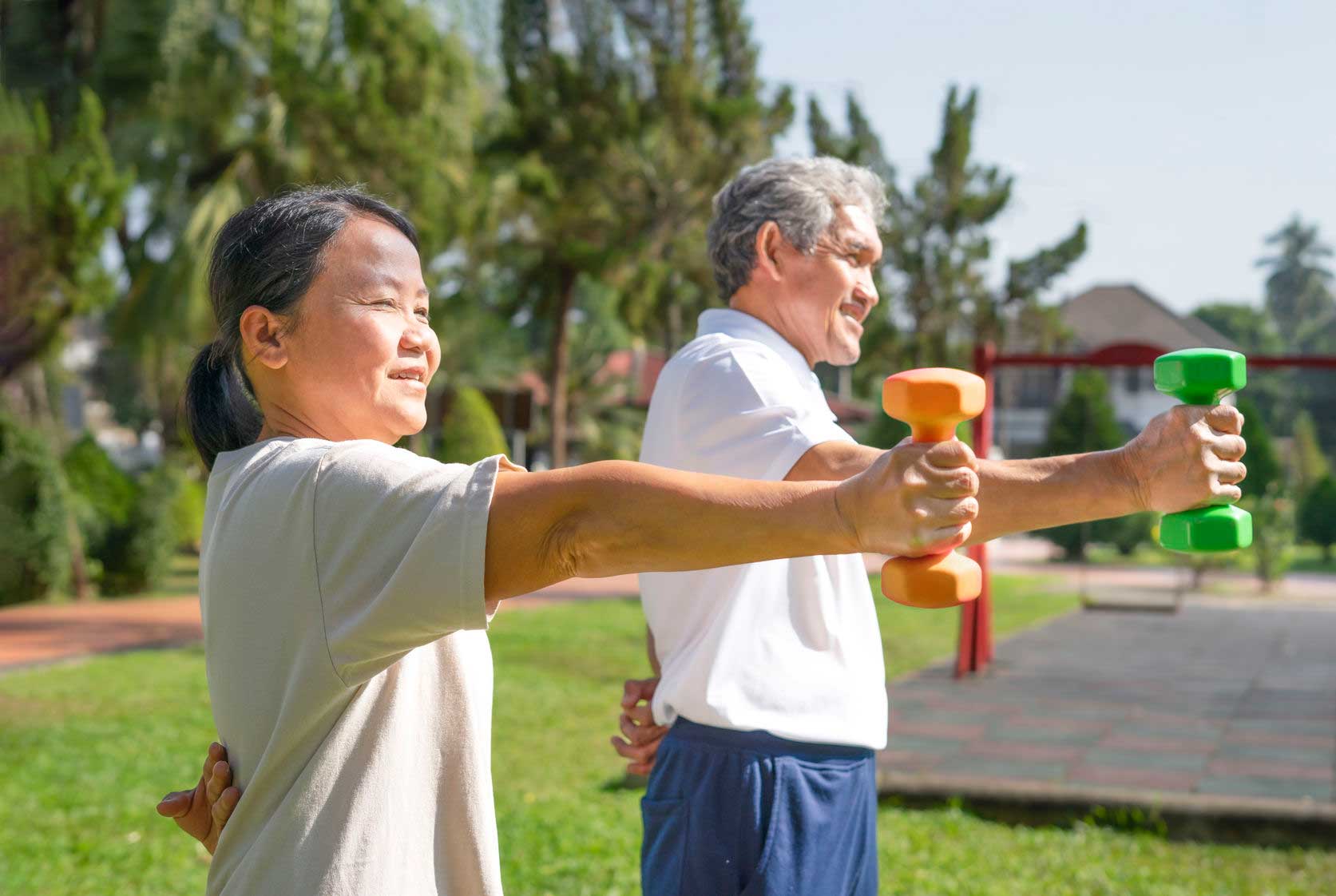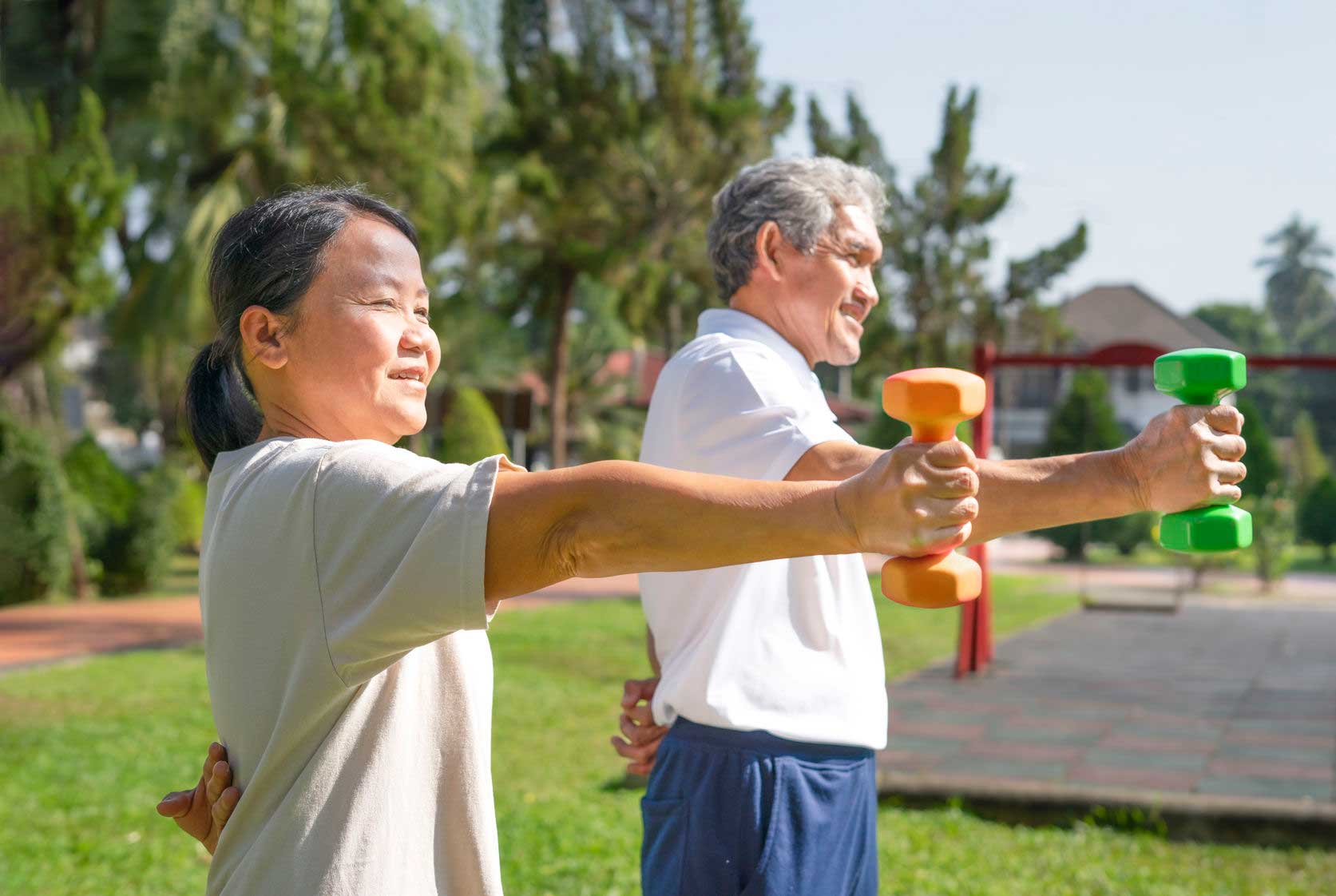Stay Healthy
The Ideal Exercise Duration for Adults Over 50, According to Experts!
14 Apr 2025

The Ideal Exercise Duration for Adults Over 50, According to Experts!
14 Apr 2025
As we reach the age of 50 and beyond, the body undergoes several changes — from decreasing muscle strength and reduced flexibility to a less efficient immune system. One of the key ways to stay healthy and active during this stage of life is through regular exercise. But the question is, how long should people over 50 exercise to gain the most benefit?
Regular Exercise, the Key to Staying Healthy in Your 50s
According to CDC (Centers for Disease Control and Prevention) and WHO (World Health Organization), adults aged 50 and above are recommended to engage in 150 to 300 minutes of exercise per week. If broken down, that’s around 30 minutes per day for 5 days. The type of activity can vary from brisk walking, light cycling, swimming, to low-impact aerobics or yoga. What matters most is consistency and choosing activities that match your body’s capabilities.
Benefits of Exercising After Age 50
Why is exercise still important even as we get older? Here are some of the benefits you can feel:
- Improves muscle strength and stamina
Regular physical activity helps slow down muscle mass loss and keeps the body energized. - Supports heart health
Activities such as walking and swimming can improve cardiovascular function and reduce the risk of heart disease. - Boosts mood and mental health
Endorphins released during exercise can lift your mood, reduce stress, and help maintain emotional balance. - Strengthens the immune system
Physically active bodies are proven to have stronger immune defenses and are better prepared to fight illness.
Don’t Go Overboard! Choose Exercises That Match Your Condition
Everyone has a different physical condition. That’s why it’s important to tailor the type and intensity of your workouts to your health status. For example:
• Have joint problems? Choose low-impact activities like walking or swimming.
• Have a history of heart disease? Talk to your doctor before starting a new exercise routine.
Be Careful, Too Much Enthusiasm Can Be Harmful!
Sometimes, the motivation to exercise leads to overtraining. But excessive workouts in older adults can result in fatigue, muscle injury, or even lower immunity. The tip? Listen to your body. If you feel excessive fatigue or pain, don’t push yourself. Rest is also an important part of a healthy routine.
Let’s Start a Healthy Lifestyle Today!
Regular exercise is a long-term investment to maintain your quality of life—especially for those of you aged 50 and above. Amid the natural physiological changes like reduced muscle strength, flexibility, and stamina, staying active helps you remain healthy, independent, and energetic in your daily life.
With the duration recommended by experts 150 to 300 minutes per week, you don’t need to engage in intense activities. Light exercises like walking, gentle aerobics, swimming, or yoga can still give you great benefits, from supporting heart health and strengthening muscles to stabilizing your mood.
But just as important, make sure your workout fits your physical condition. Listen to your body’s signals, don’t hesitate to rest, and consult a medical professional if you have any existing health concerns.
So, it’s never too late to begin a healthy lifestyle. Start with small steps, do it consistently, and make exercise a part of your daily routine. For a complete guide and more inspiration, check out this educational video from BNI Life:








